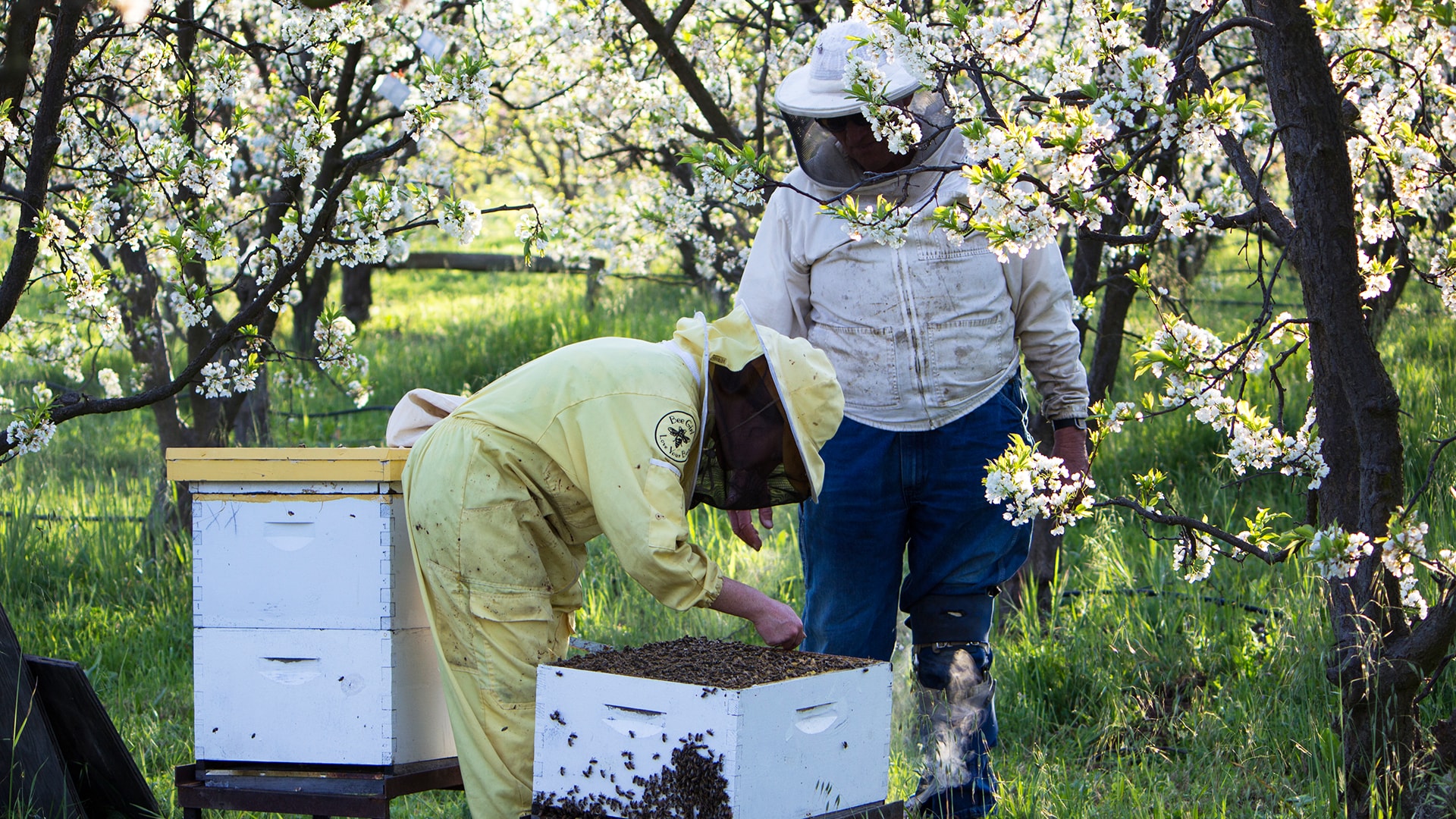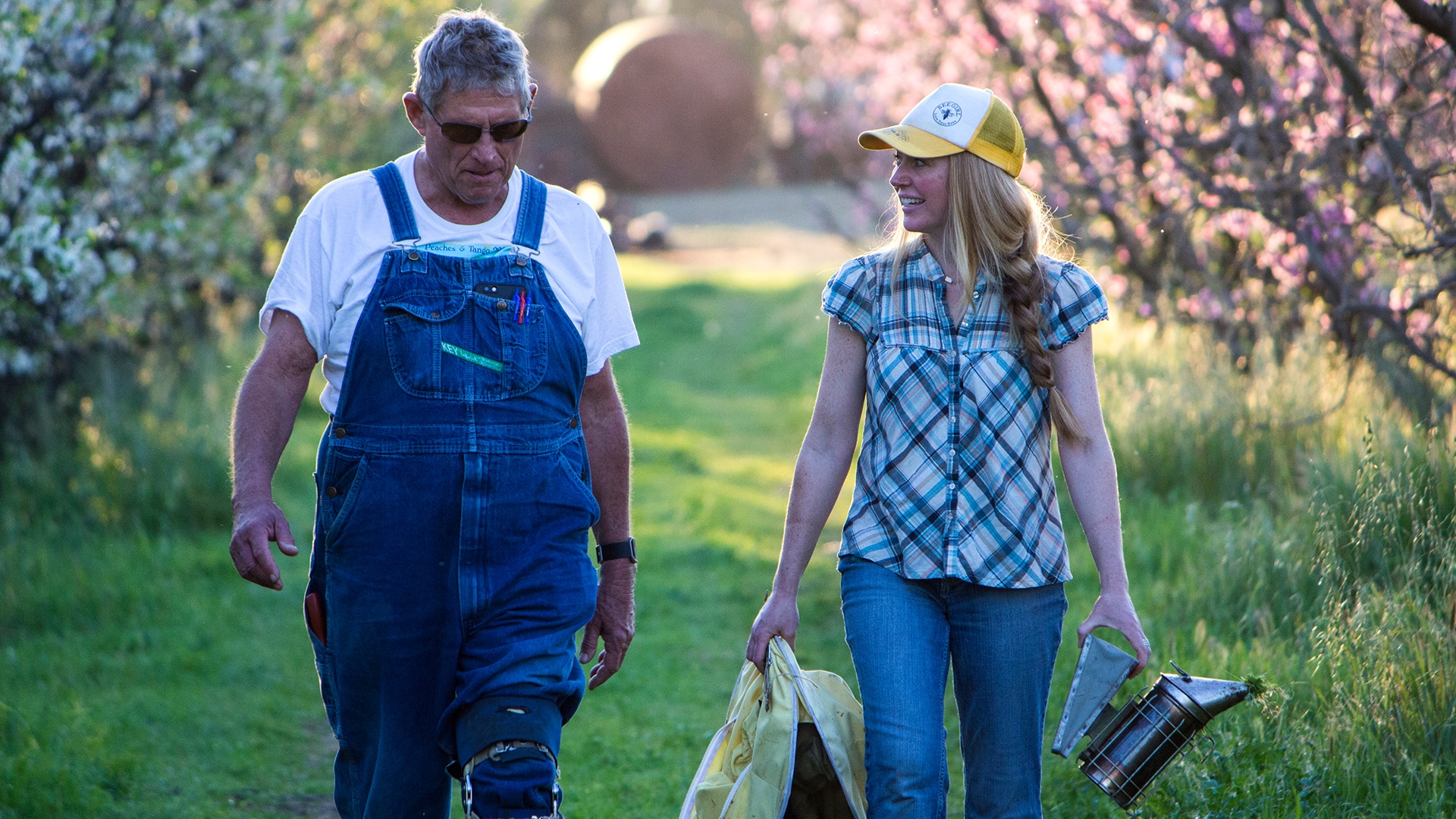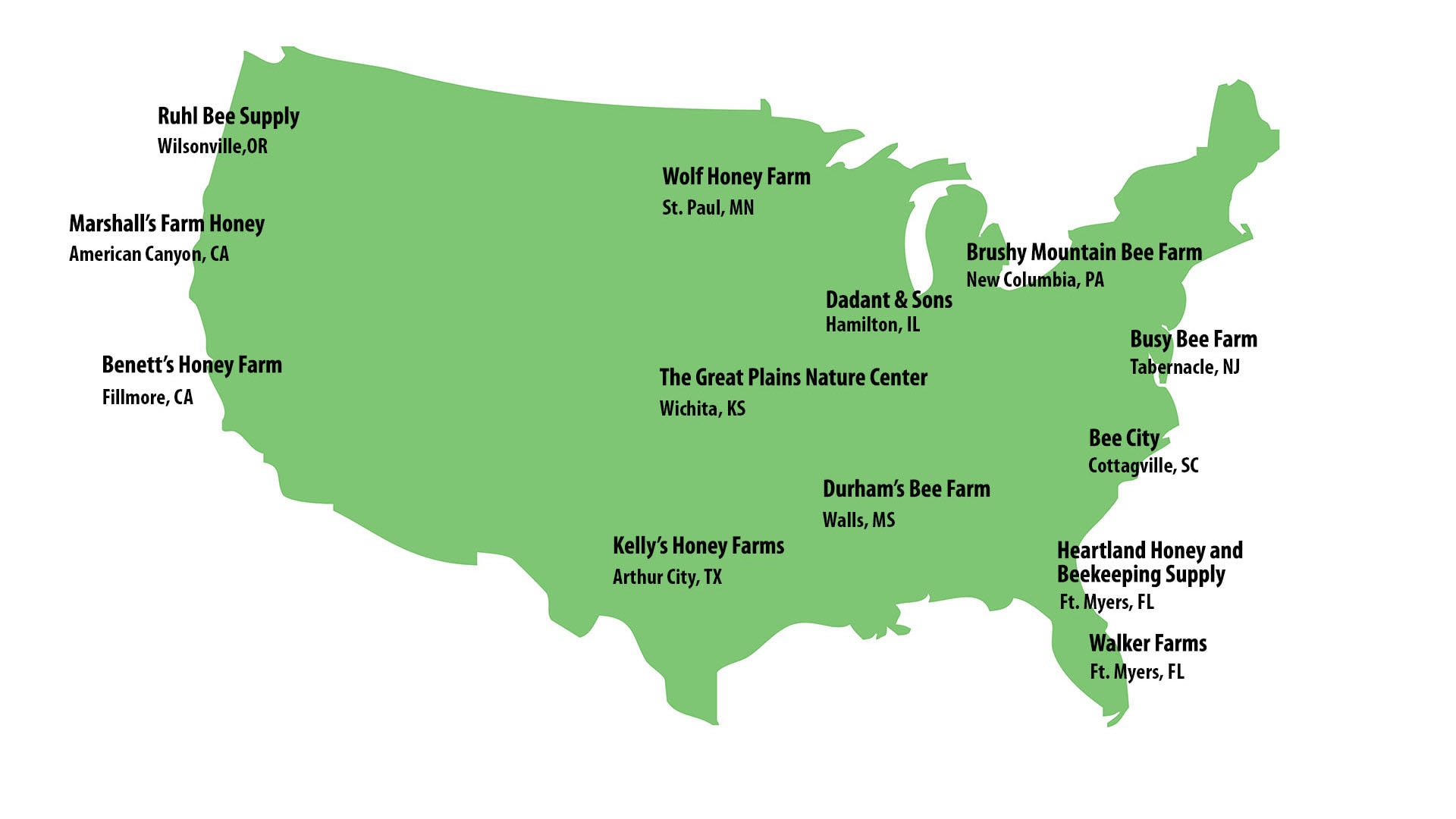Beekeeper Sarah Red-Laird
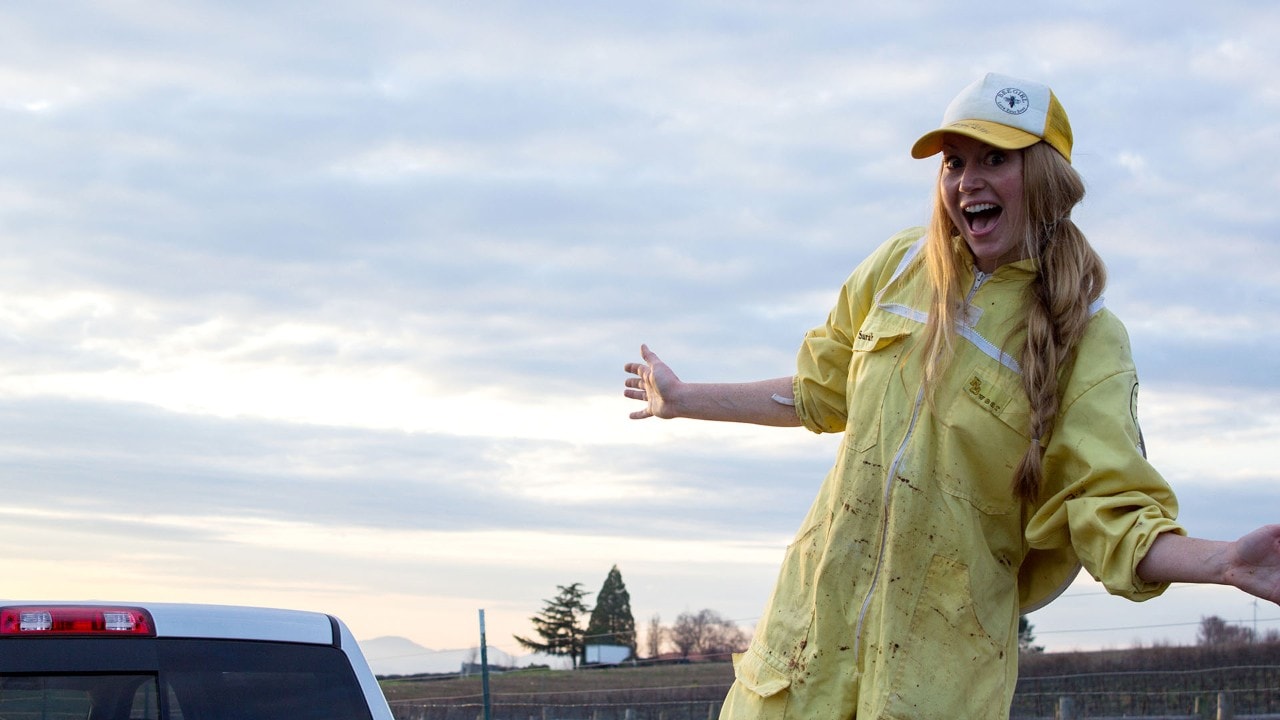
Beekeeper Sarah Red-Laird
Story and photos by Jay Zschunke
Jay is an Associate Copywriter with 360i in New York City.
A lifelong fascination with bees led to a thriving business.
Ask Sarah Red-Laird how many times she’s been stung by a bee – she'll shake her head and laugh, estimating at least a dozen stings per day. “Bee season is eight months long, so you do the math.”
Sarah, known popularly as the Bee Girl, likens bee stings to carpenters hitting their thumbs with a hammer – it comes with the territory. Most people try to maintain distance during an encounter; Sarah is the exact opposite. “I want to get as close as possible so I can see what they’re doing.” This fascination with bees has been apparent since she was a young girl.
As a kid in Ashland, Oregon, Sarah was deeply inspired by an aunt who kept bees. “Back then, if you lived in a community at the end of a country road like she did, you had bees.” Sarah remembers pestering other beekeepers for a taste of sweet, fresh honeycomb, or for a batch of beeswax that she could mold into the shape of tiny people. From these experiences, she was sold on bees for life.
Dedicating her life to beekeeping never felt like a choice. “Whatever put me on this path is not letting me off of it.” Everything about bees captivates her. Sarah loves watching them in the hives, seeing their antennae twitch and studying their mystical communication patterns. What enthralls her most is the fact that they’re a completely functional, leaderless society. “Everything they do is for the greater good. They’re truly altruistic.” This benefits everything – the flowers they pollinate, the farmers and, ultimately, just about any creature that eats food.
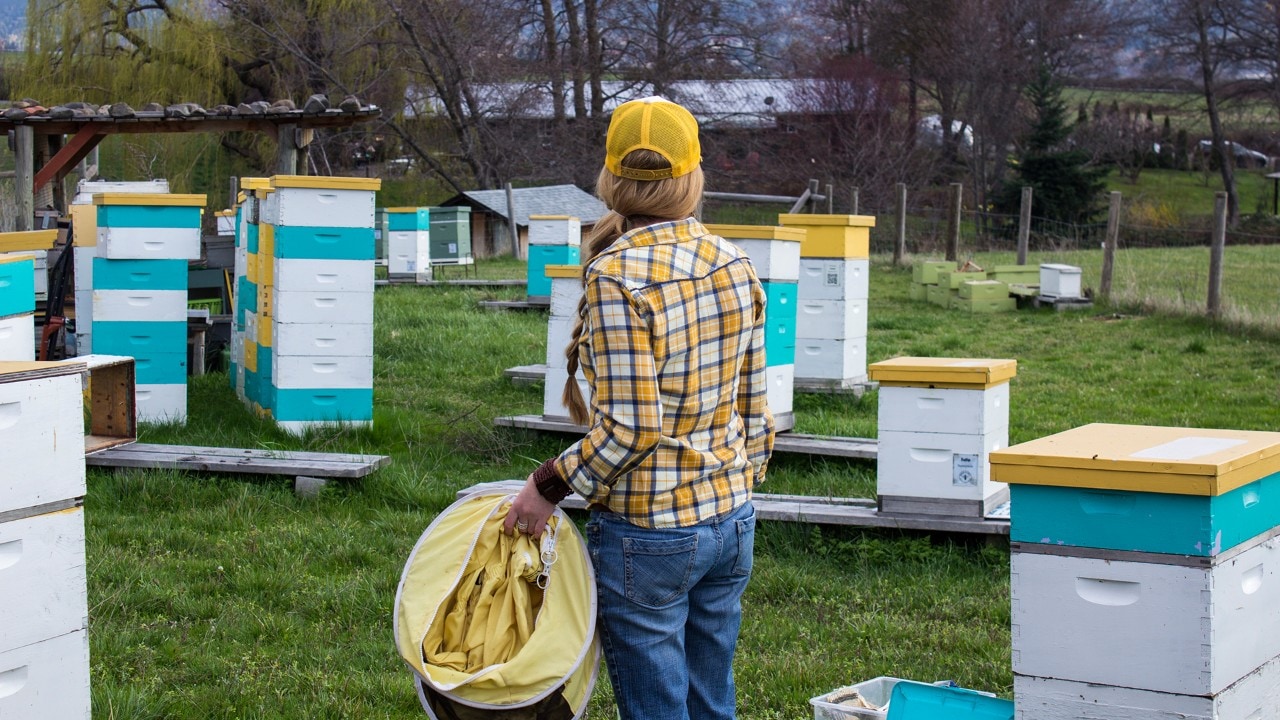
Sarah surveys the hives.
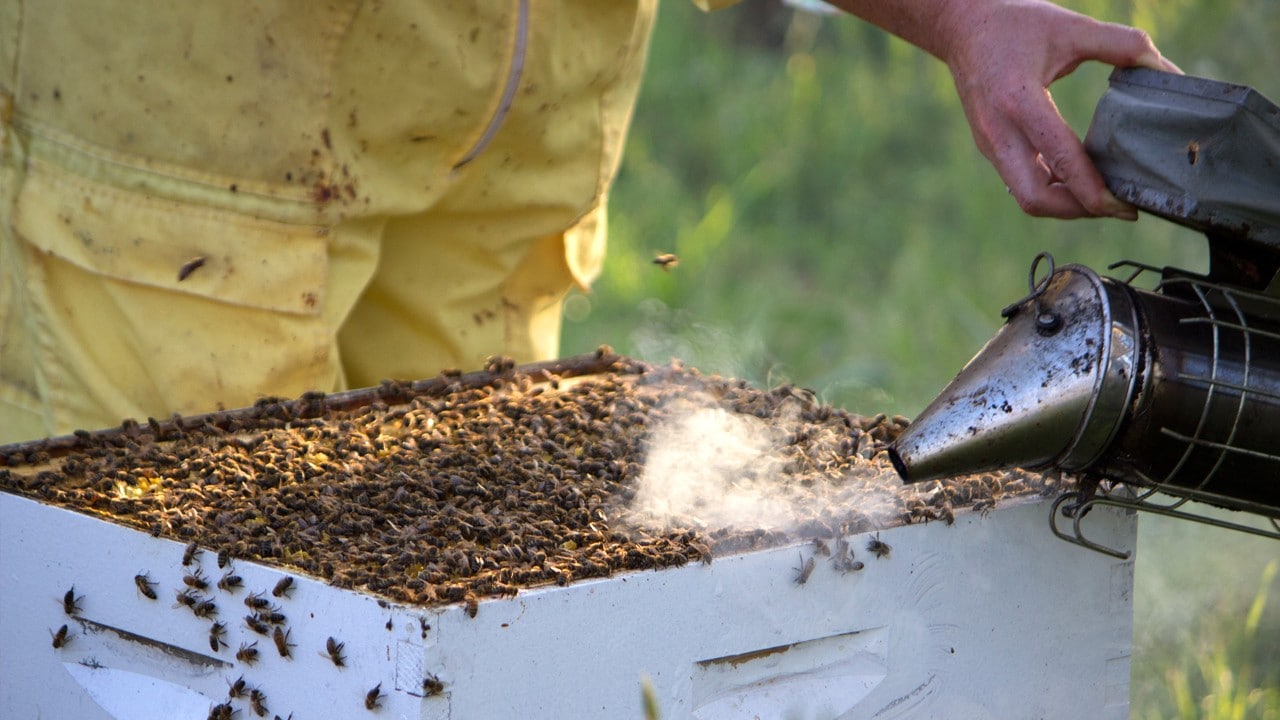
Smoke sedates the bees.
Sarah is now a well-known beekeeper and educator in Ashland. She founded the Bee Girl Organization – a nonprofit that encourages communities to conserve bees, flowers and our food system, through community classes and events. She plays a vital role in creating a tight-knit community of casual and full-time beekeepers, in her area and all over the world. Sarah travels a lot for work but feels lucky to call Ashland home. When she returns, she finds it comforting to fit back into – and feel loved by – her community.
Without that community support, Sarah wouldn't be able to help struggling bees nearly as well. The bee population is negatively affected by many things like pesticides, climate change and viruses spread by Varroa mites. But according to Sarah, habitat loss is the major factor contributing to declining bee numbers. “If they were able to have good, clean, adequate bee habitat (read: flowers), then that would lessen the effects of everything else.”
Our food system depends heavily on the symbiotic relationship between bees and flowers. Bees pollinate one out of every three bites of food we eat. Imagine a world without plums, cherries, strawberries, blueberries or pumpkins. Bees pollinate the alfalfa many cows eat, which then provides us with milk and hamburgers. Bees also pollinate the cotton we wear every day. “If we didn’t have healthy, happy bees on our landscape, our ability to provide for everyone on this earth would be severely compromised.”
Despite all the negative factors affecting bees, Sarah remains positive about their outlook. She believes they’ll thrive if beekeepers, farmers and the public work together to support them and their habitats.
Related Articles
- The Bee Journey
- Farmer Al Courchesne
- 13 Spots to Learn about Beekeeping

